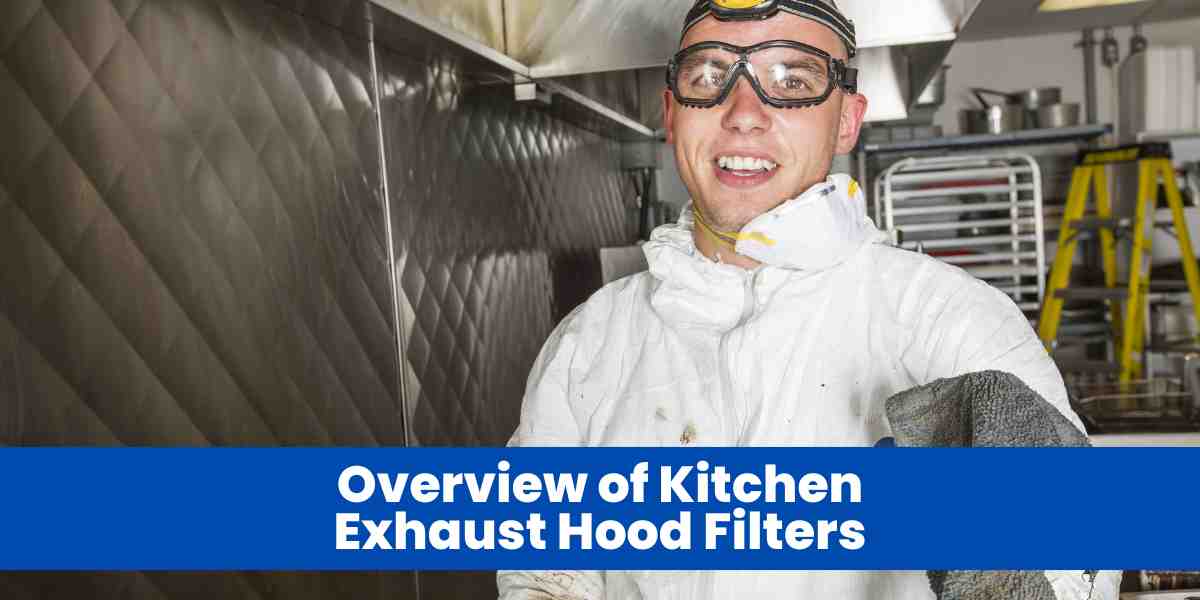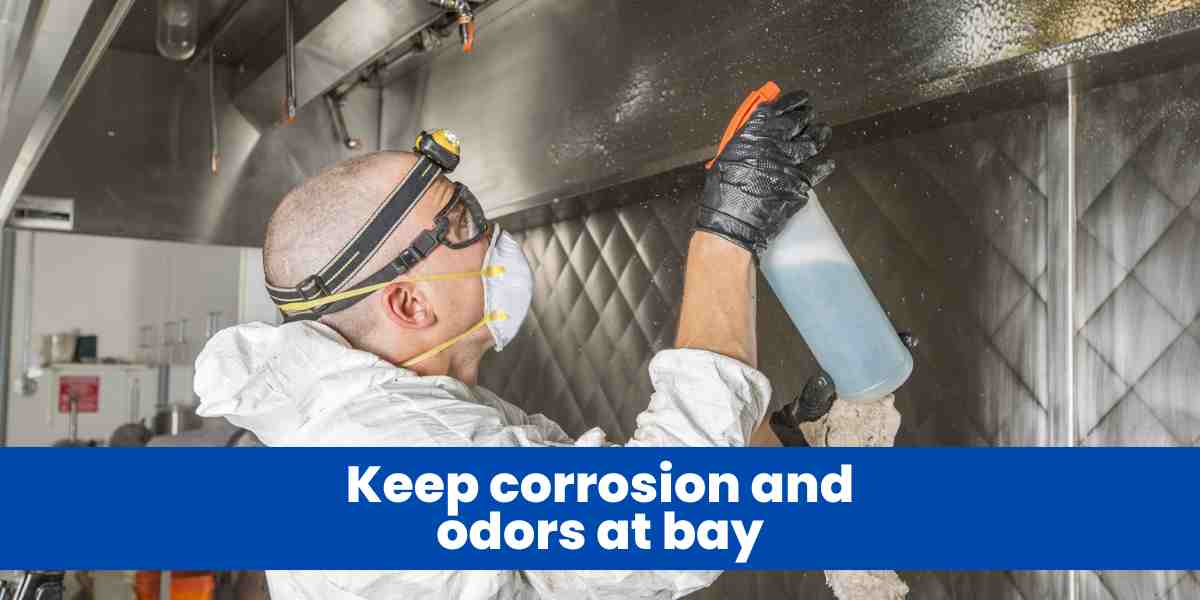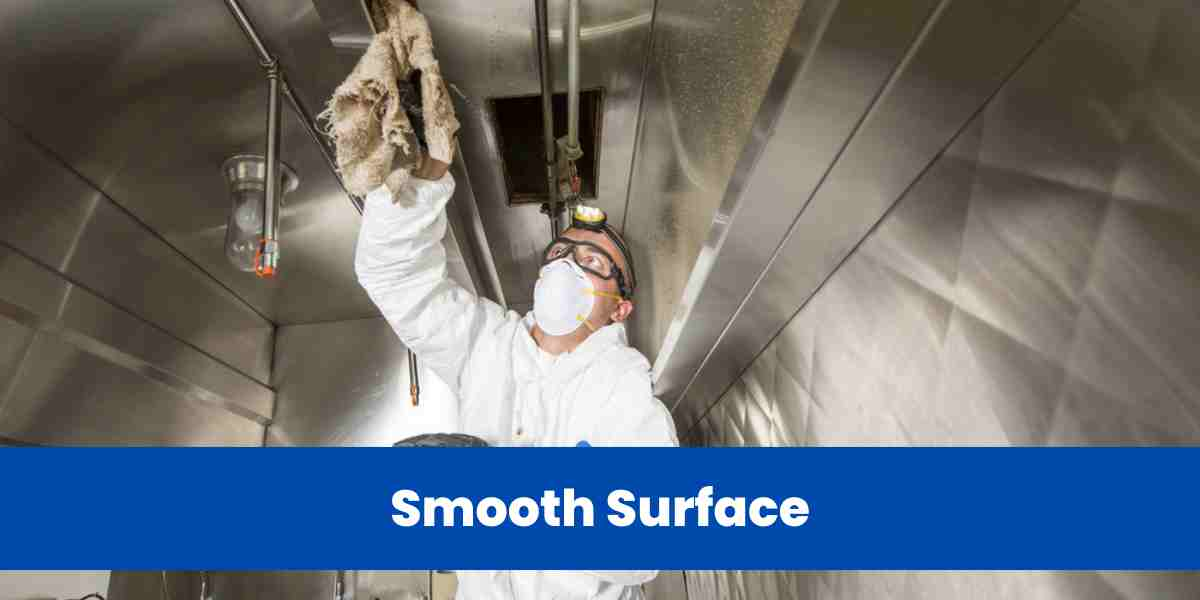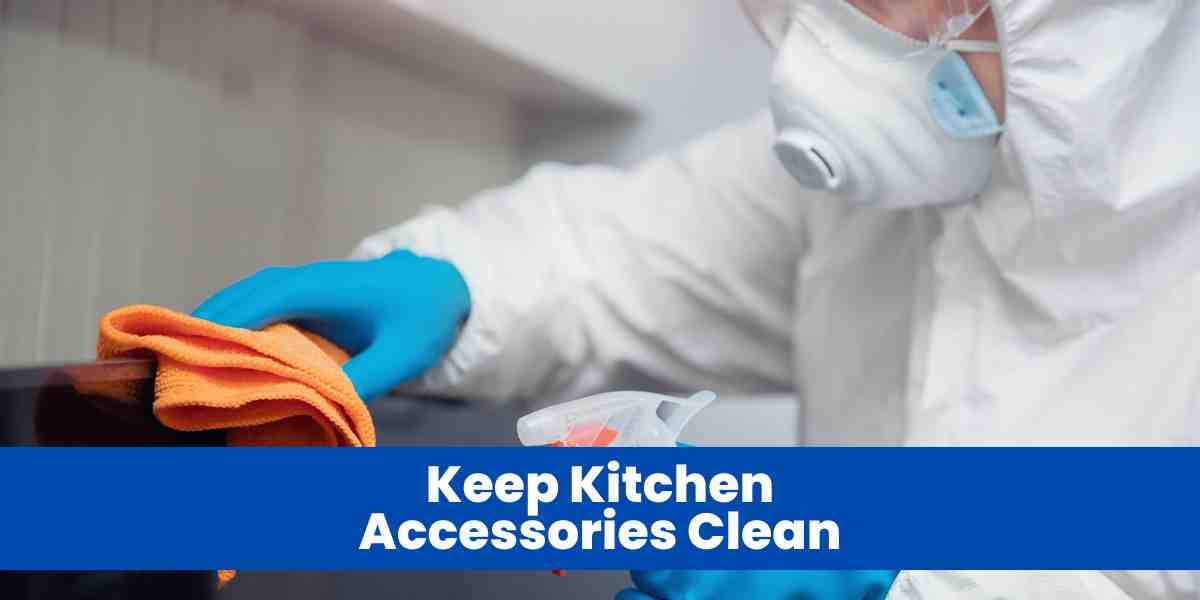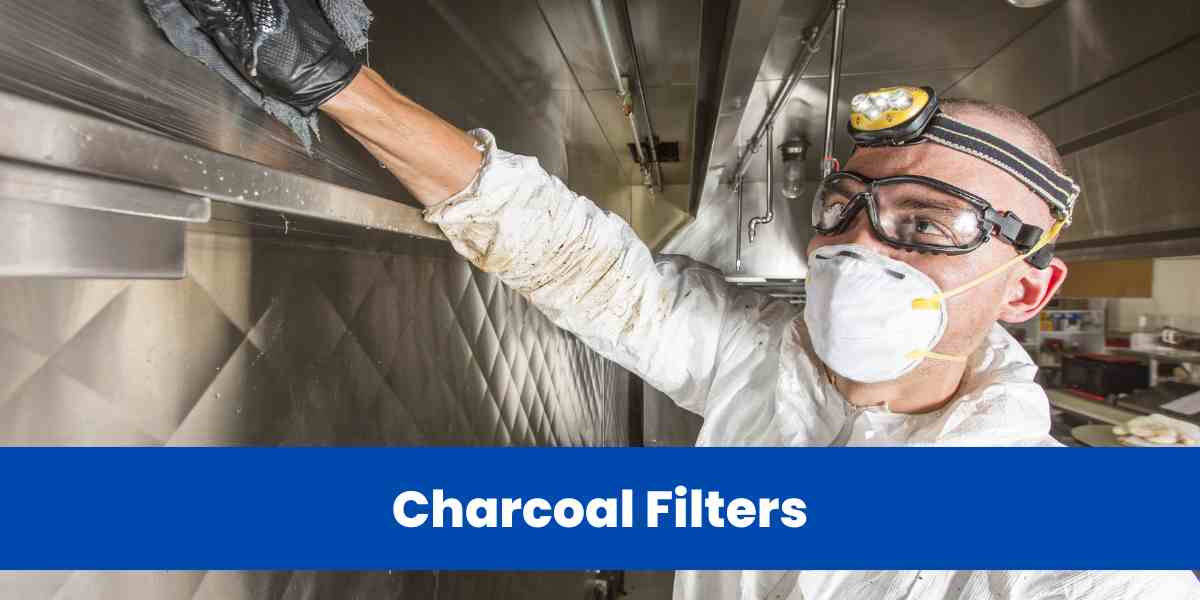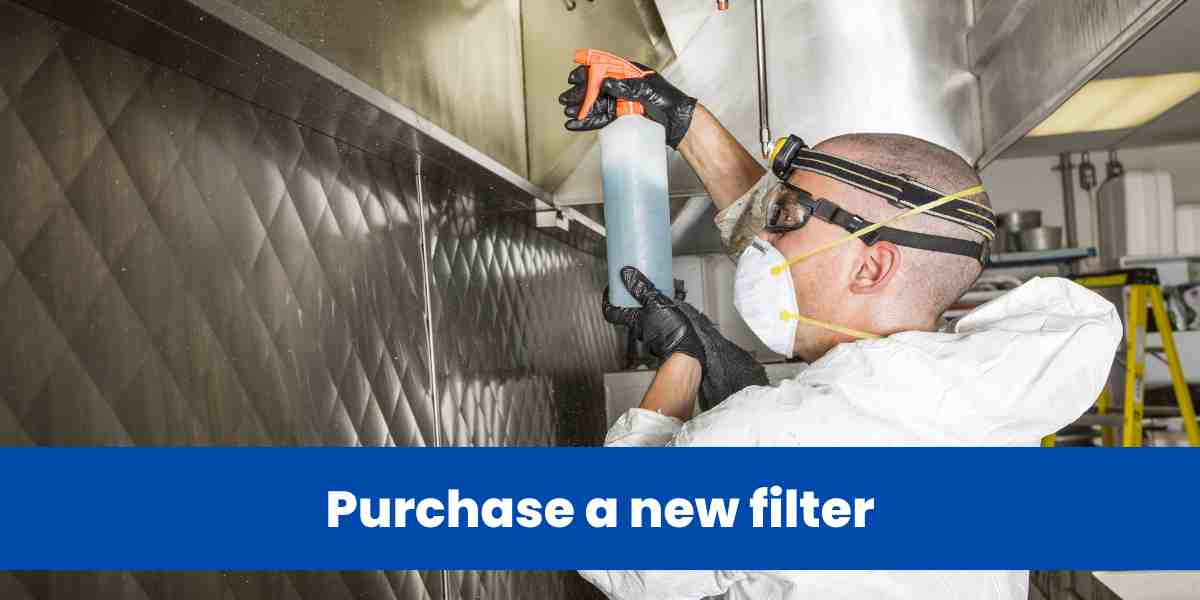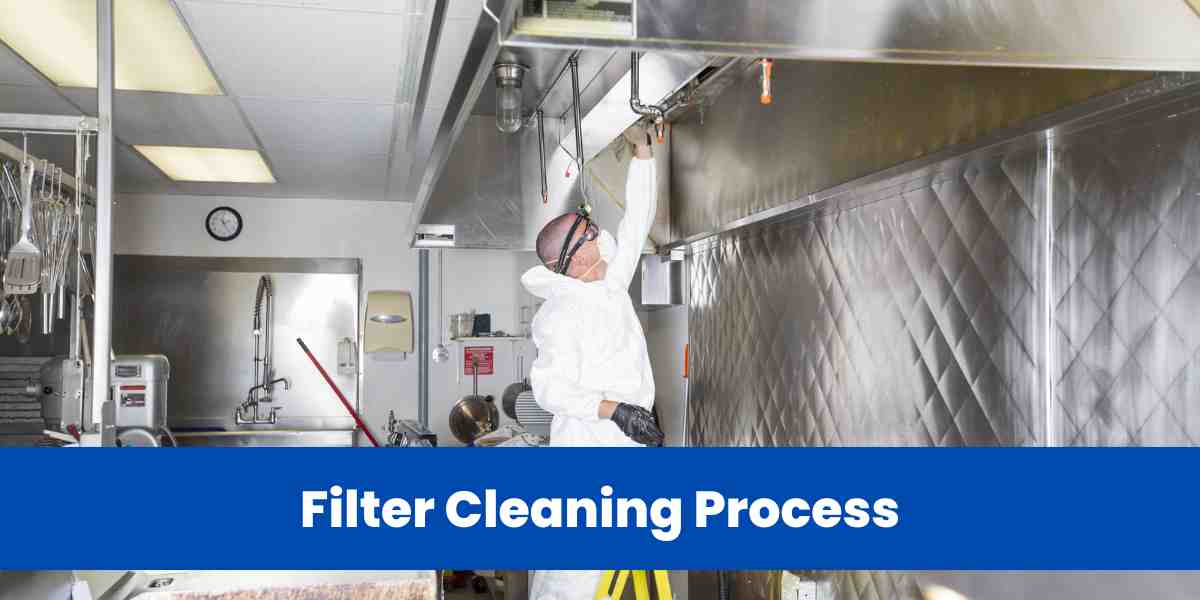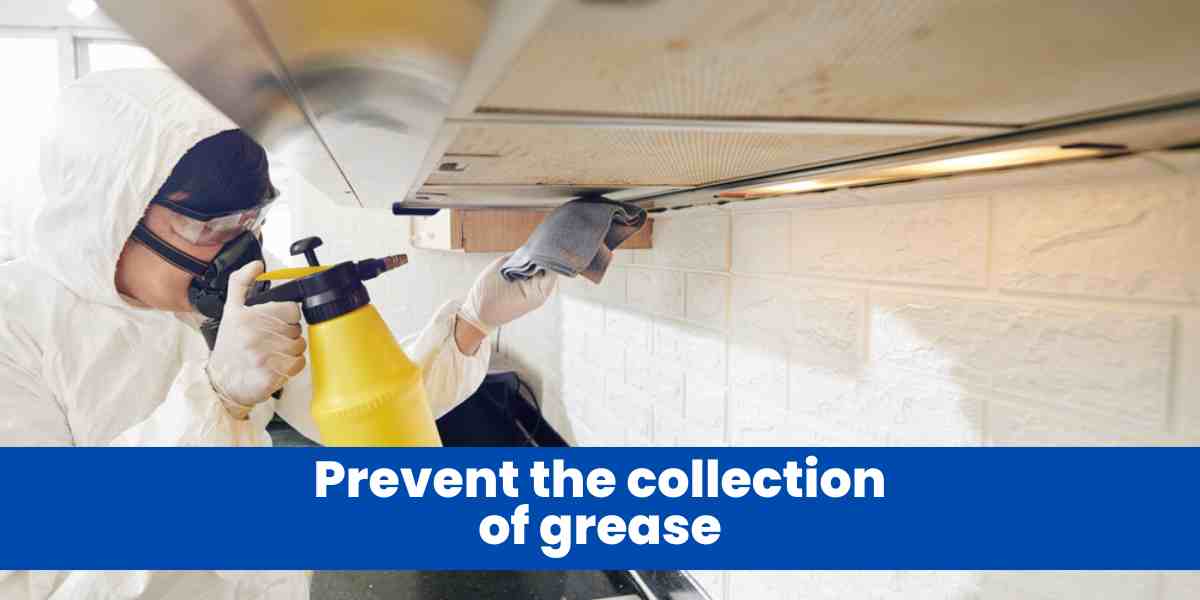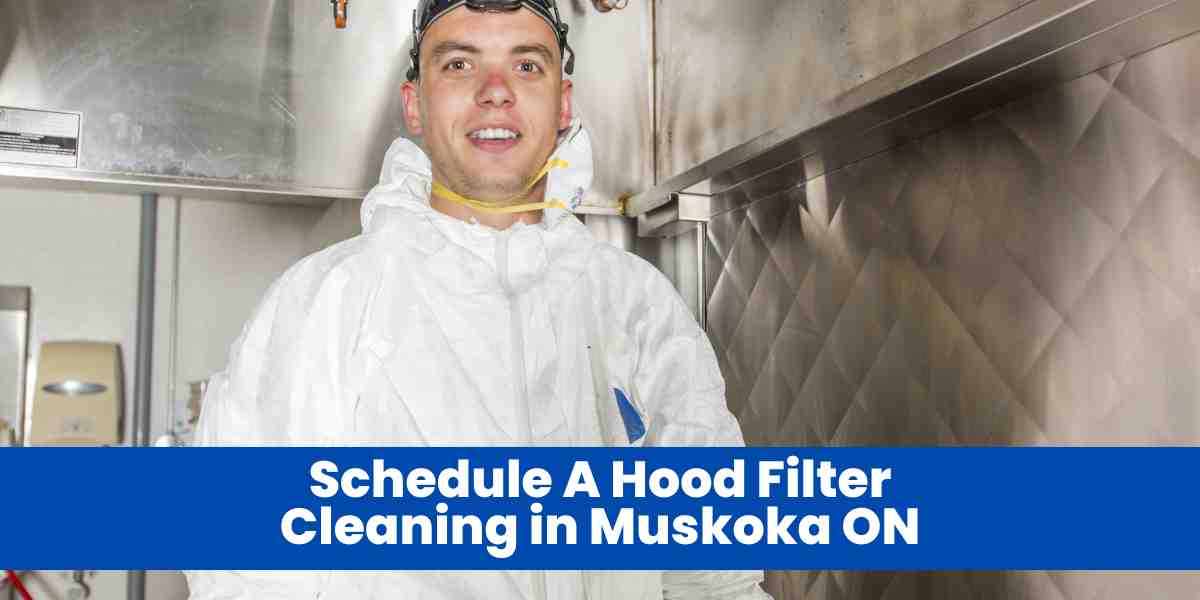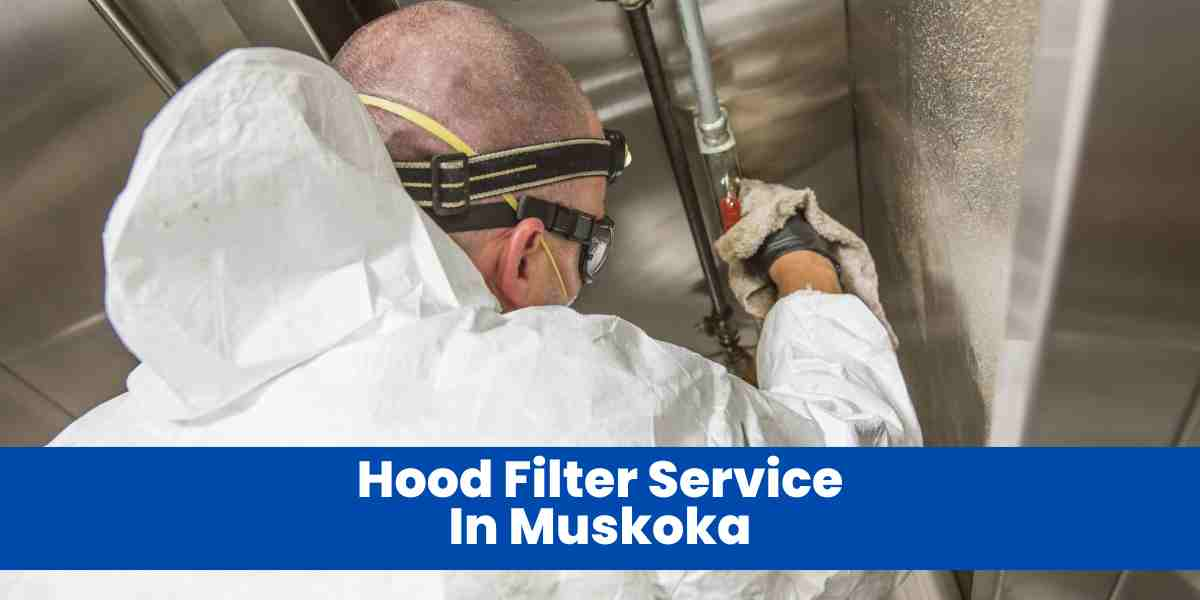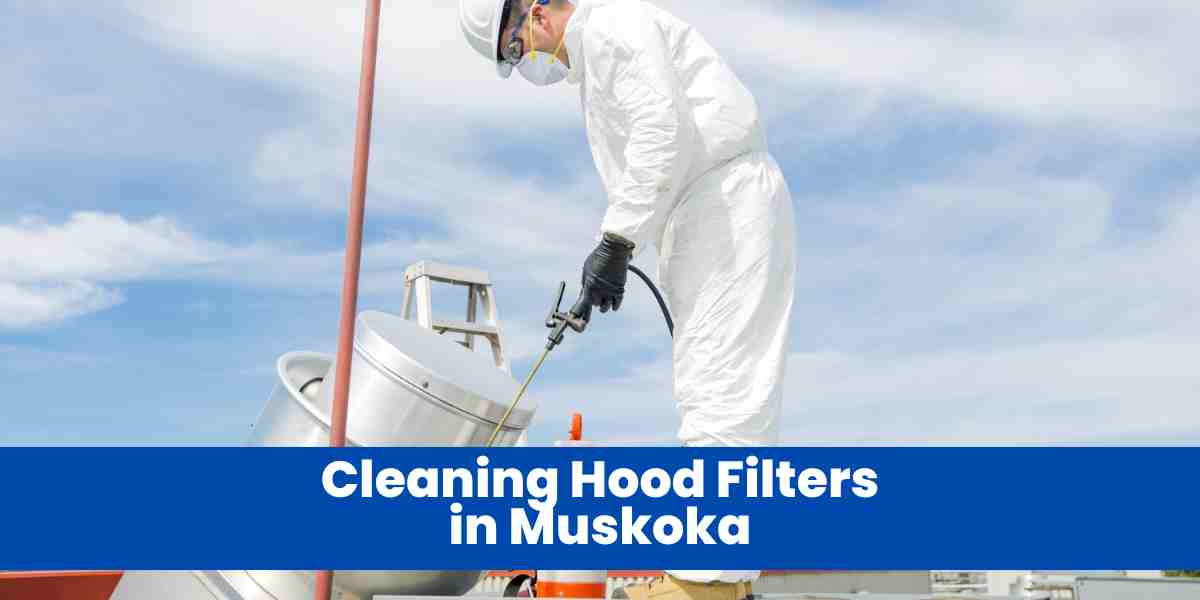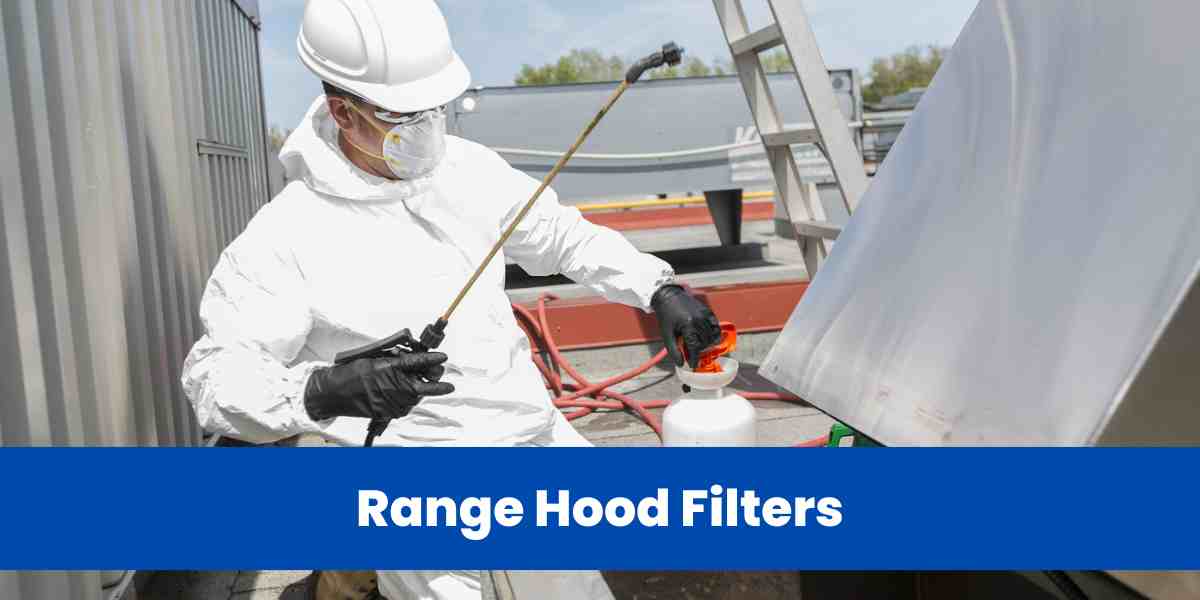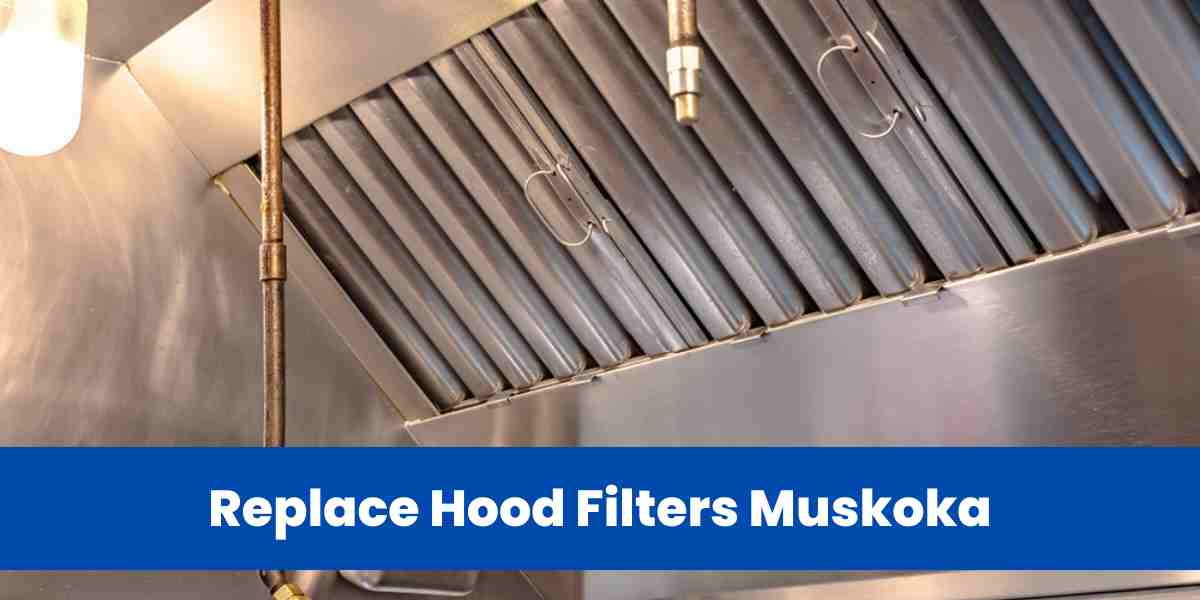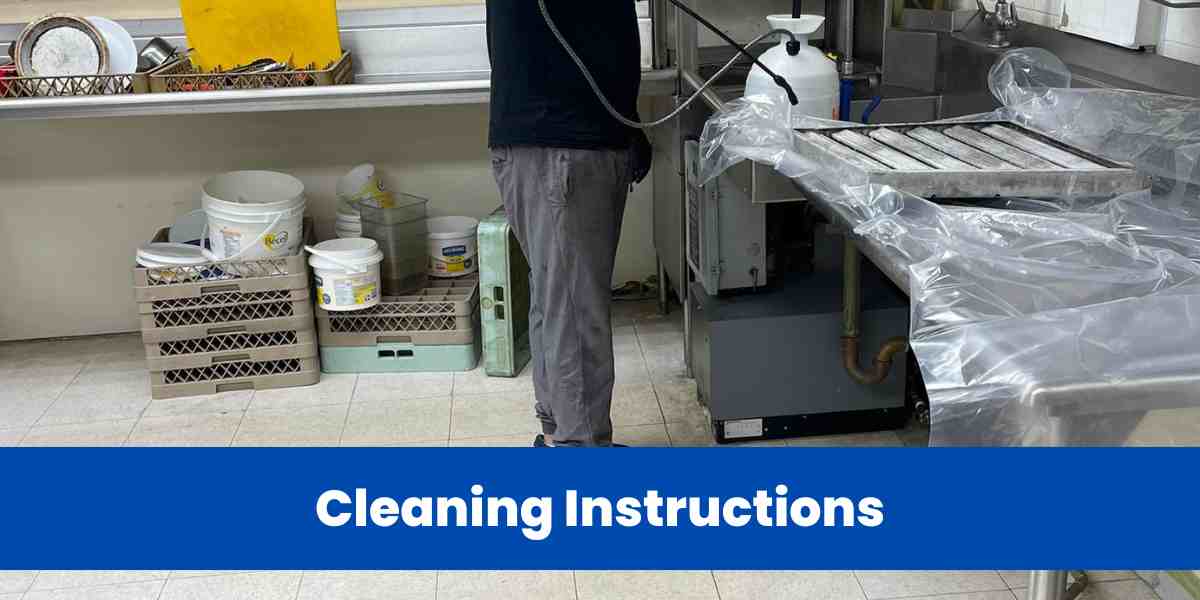Kitchen Exhaust Hood Filters
Any establishment that serves food must have a commercial kitchen exhaust hood filter. Its purpose is to prevent potentially dangerous grease, smoke, and other airborne pollutants from entering the working area. The filter keeps the air clean while yet allowing for enough ventilation.
Particles are not discharged into the air because they are captured in a fireproof substance by the exhaust hood filter. Due to this measure, there will be fewer flammable materials and airborne contaminants in the kitchen. The filters’ efficacy in protecting employees and consumers from injury depends on frequent maintenance and filter replacement.
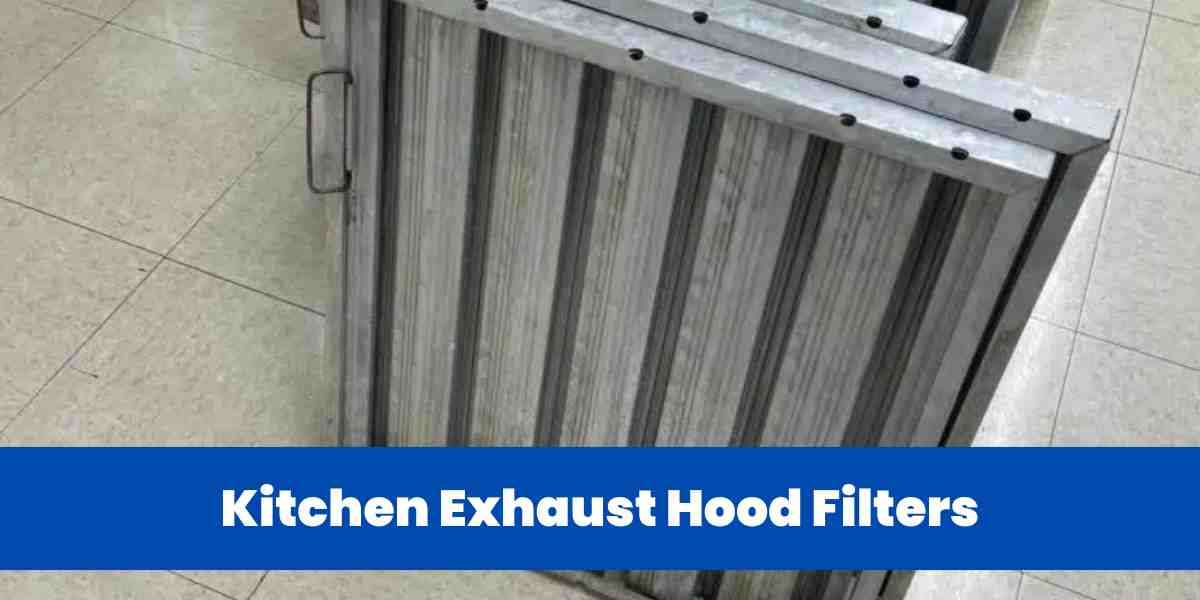
Request a Estimate
exhaust cleaning estimate today.
Hood Filter Replacement from Muskoka Hood Cleaning
It is crucial for the well-being and efficiency of a commercial kitchen that the exhaust hood filter is regularly inspected and replaced. When you choose Muskoka Hood Cleaning, you can be certain that your filters will always be in top working order because of their cleaning services’ excellent quality and professionalism.
We use approved, professional-grade equipment to clean all filters, including those in range hoods and grease interceptors. To top it all off, our seasoned experts can assist in spotting problems before they escalate. With the help of Muskoka Hood Cleaning, you know that your filters are being cared for as they should be, ensuring the health and hygiene of your food service business.
Overview of Kitchen Exhaust Hood Filters
A business that serves food must have kitchen exhaust filters installed. They enable for adequate ventilation while preventing grease, smoke, and other airborne pollutants from entering the working area. The filter eliminates fire hazards and airborne contaminants by enclosing them in a combustible substance that cannot pass through into the working area.
To ensure that the filters continue functioning properly, they must be regularly inspected, cleaned, and replaced. By hiring a professional cleaning service, such as Muskoka Hood Cleaning, you can be certain that your restaurant’s filters will be thoroughly cleaned by trained specialists using certified, industry-standard equipment.
Benefits of Kitchen Exhaust Hood Filters
There are two primary advantages of using filters in your kitchen exhaust system:
-
Prevent grease, smoke, and other airborne pollutants from entering the working area.
-
Eliminate the potential for fires by enclosing all combustible particles in a fireproof substance.
It is the responsibility of the restaurant owner to ensure that the establishment meets all applicable safety and ventilation codes. The easiest way to do this is by hiring Muskoka Hood Cleaning. We’ll perform a new filter installation, clean the already installed ones, and inspect your system to see if your exhaust system needs further repair. Call us to get things started.
Types of Kitchen Exhaust Hood Filters
Various filters are used in commercial kitchen exhaust hoods to collect grease, smoke, and other airborne impurities. Grease filters and carbon filters are the two most common kinds:
Filters for grease prevent grease-related fires by enclosing the escaping particles in a fireproof substance. Aluminum mesh and stainless steel are only two examples of the materials used to make grease filters. To function at their best, they need to be serviced routinely.
Carbon filters, which employ activated charcoal to remove impurities and unpleasant odours from the air, are another option. Carbon filters should be cleaned or replaced regularly if you use them to eliminate cooking odours.
Grease Filters
To prevent fires and smoke inhalation, grease filters are integral to kitchen exhaust hoods. Designed to endure extreme heat, the fireproof substance of a grease filter traps the aerosolized particles. The restaurant’s staff and patrons will benefit from the improved safety that results from this.
Grease filters prevent fires and lessen the likelihood of contracting respiratory ailments like bronchitis and emphysema. Restaurants may reduce staff exposure to dangerous air pollution by capturing pollutants before they enter the workplace. Grease filters need to be cleaned and replaced regularly to continue functioning properly and catch all particles.
Charcoal Filters
Commercial kitchens can benefit greatly from carbon filters because they can eliminate smells and collect airborne pollutants. The filter’s activated charcoal may neutralize offensive aromas from cooking and other sources, improving the dining experience for everyone. Carbon filters are useful for eliminating unpleasant odours and removing smoke and other aerosolized particles from the air.
These filters need to be cleaned or replaced frequently to keep functioning at peak efficiency. This verifies the filter’s efficacy in removing harmful particles before they can affect human health. Also, carbon filters are cheaper than other filter types, making them a viable alternative for many eating establishments.
Metal Filters
Metal filters offer the best protection against smoke and fire and are thus a perfect choice for industrial kitchens. Grease and other flammable elements are less likely to start fires when filtered by metal filters. For this reason, they are a great fit for busy eateries with lots of cooking.
As a bonus, metal filters last far longer than their carbon or cloth counterparts since they don’t get dirty as quickly. Though metal filters are more expensive up front, they pay for themselves in the long run through reduced maintenance costs and greater safety, making them a good investment for most industrial kitchens.
Stainless Steel Filter
In a commercial kitchen, stainless steel filters have several benefits. For starters, they endure a very long time without needing to be replaced, which lowers their overall cost. They won’t rust or corrode even when subjected to high humidity and temperatures, making them ideal for outdoor use. Stainless steel filters are also less likely to harbour germs or become contaminated due to low maintenance requirements.
Stainless steel filters also have a wide range of applications. Among their many potential uses are oil filtration, grease elimination, and air cleaning. They may be used in various ovens, grills, and fryers. In a kitchen where sanitation and safety are of the highest importance, using non-toxic stainless steel filters is a must.
Hood Filter
Cleaning the filters in commercial kitchen hoods regularly by a trained professional is crucial for keeping the kitchen clean, healthy, and efficient. Kitchen workers are put in danger when filters get clogged or unclean because of the accumulation of smoke, grease, grime, and germs. Maintaining a clean filter also aids the exhaust system, making it more effective in removing unwanted heat and smoke.
Commercial hood filters should be cleaned regularly to ensure they function at top capacity and provide maximum protection against airborne contaminants. Having a professional clean the filter is the best way to ensure it is properly maintained, as they can carefully remove any buildup without causing any damage to the filter or its components. In addition, experts may go over the exhaust fan and identify any problems that may arise.
Contact Muskoka Hood Cleaning for any issues related to your commercial kitchen hood filter. Our technicians handle the installation, cleaning, maintenance, repair, and replacement of your filters.
Schedule A Hood Filter Cleaning in Muskoka ON
If a restaurant owner schedules hood filter cleaning services with Muskoka Hood Cleaning, they may reap several benefits. Our qualified specialists will meticulously clean all the hood filters using the most up-to-date gear and procedures.
Furthermore, we provide convenient scheduling, allowing restaurant owners to set up service at their leisure.
Finally, consumers will feel at ease, knowing that they’re working with a reputable and professional company since Muskoka Hood Cleaning is completely insured and offers a satisfaction guarantee.
Hood Filter Service In Muskoka
Four options for hood filter cleaning and maintenance are available from Muskoka Hood Cleaning.
Installation – Experts can install brand-new hood filters or fix worn-out ones in eating establishments. This checks the integrity of the whole exhaust system.
Cleaning – Keeping the hood filter clean by a professional ensures that the exhaust system is working at peak performance and that the kitchen is a safe place to work.
Inspection – The specialists will thoroughly inspect the exhaust system, including the fans, hoods, and filters, to locate any problems that may exist.
Replacement – Our professionals can replace old or broken filters with brand-new ones to restore the kitchen’s ventilation. So, call Muskoka Hood Cleaning today – a free quote is waiting!
Cleaning Hood Filters in Muskoka
The first step in any professional hood filter cleaning is an in-depth evaluation of the filters. Depending on the filter’s make and condition, this may necessitate the use of specialist equipment like pressure washers or ultrasonic cleaners. After deciding on a cleaning strategy, the filters are removed from the hood and transferred to a special cleaning facility, where they are washed and dried using the right tools and chemicals.
It is common practice to use a hybrid of mechanical and chemical techniques throughout the cleaning procedure. Heavy grease and other buildups on the filters can be removed mechanically using high-pressure water jets or abrasive brushes. Detergents and degreasers are used in chemical cleaning to dissolve and eliminate built-up grease and dirt.
After being cleaned, the filters are given a final rinse with water to get rid of any leftover cleaning solutions, and then they are dried and put back into the hood. In most cases, when you hire a professional to clean your hood filter, they will replace it.
Range Hood Filters
Due to several circumstances, grease, filth, and other impurities can accumulate on the filters of range hoods in industrial kitchens. The constant exposure to high heat and moisture, which can lead to the accumulation of oils and other culinary by-products, is a major contributing factor. If this accumulation isn’t periodically cleared out, it can reduce the filters’ efficiency and even raise the fire risk.
Filters for range hoods are easy targets since they sit in a highly trafficked part of the kitchen. Therefore, they are vulnerable to being broken or knocked out of place, reducing their efficiency and making them more challenging to maintain and clean. They are also subjected to several pollutants, such as smoke, steam, and food particles, all of which can add to the accumulation of grease and grime as a result of working in a busy kitchen.
To keep your range hood working properly and safely, you should regularly clean and change the filters. It is also crucial to use the appropriate filter for each piece of kitchen machinery and check and replace them as needed. Best of all, choose to work with Muskoka Hood Cleaning so we can do the hard work on your behalf.
Replace Hood Filters Muskoka
Keeping the filters in the kitchen hood regularly changed ensures that the working and eating conditions in the kitchen are safe and healthy for everyone involved. When a hood filter needs to be changed, it exhibits several symptoms.
The filter’s physical appearance will first noticeably shift. It’s time to get a new filter if the old one is severely damaged (bent, broken, or stained). The second indicator is a diminished amount of exhaust airflow. It may be time to replace the filter if cooks have to crank up the fan to eliminate lingering aromas and smoke in the kitchen. Thirdly, if grease fires break out frequently in the restaurant kitchen, which might be caused by an insufficient exhaust system owing to outdated or broken filters, this is a red flag.
Keeping note of when the hood filter was last replaced is another important safety measure that restaurants should take to ensure they are following best practices and not putting customers at risk. Optimal safety can be maintained, and future legal trouble can be avoided using this measure.
Cleaning Instructions
The following are some broad guidelines for maintaining a clean hood filter in a commercial kitchen:
Disconnect the under-hood wiring and switch off the power.
Release any clips or latches, keeping the filters attached to the hood, then pull them out.
Check for damage or excessive wear on the filters, and replace if required.
Apply a degreaser or wash the filters with hot water and a powerful detergent. You should use a stiff brush to clean the filters of all the accumulated dust and grease on them.
To eliminate any leftover cleaning solution or dirt, give the filters a good rinsing with hot water.
Use a clean cloth or let the filters dry naturally.
Replace the filters into the hood and again check their fit.
To ensure that the hood is functioning correctly, the power must be restored and the switch must be tested.
To prevent damage, it is essential to clean and maintain the product in accordance with the manufacturer’s instructions, using only approved cleaning products and tools. For the same reason, it’s imperative that only qualified individuals clean the hood filters, as doing so improperly might lead to serious injury.
Replacing Filters
Filter size, grease accumulation, and kitchen activity affect how often a restaurant’s hood filters need to be swapped out. Depending on how often they are used, filters often need to be changed every six months to a year.
It is time to change the filter if there is visible damage or if the exhaust fan is noisier than usual. Also, the filters should be checked regularly to ensure they haven’t accumulated any dust or debris. The grease buildup or an unpleasant odour may alert restaurant employees that the filter is no longer functioning correctly to capture smoke and fumes, signalling the need for a replacement.
To replace filters on time, restaurants might benefit from a preventative maintenance program that sends reminders and schedules maintenance visits. By adhering to this plan, restaurants may ensure that their hood filters continue to perform correctly and prevent any future health and safety problems.


